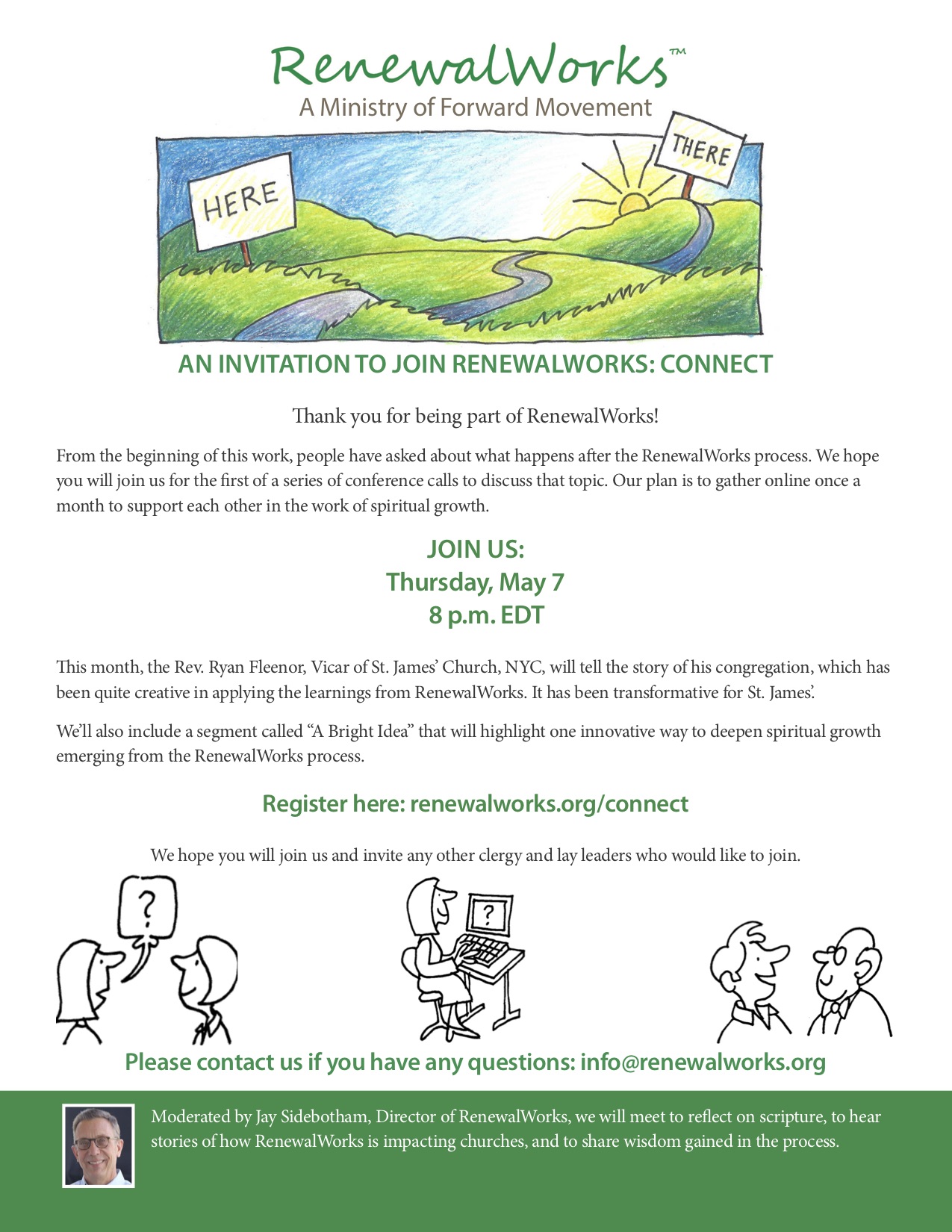
Time flies when you’re having fun.
Later this week, I’ll observe the 30th anniversary of my ordination to the priesthood. How did that happen? It’s been an interesting journey, some smooth sailing, some doldrums, some choppy waters, lots of fun rides with the wind of the Holy Spirit at my back. I’ve met so many great people. I’ve had many wonderful teachers. Some of them have even been clergy!
Any anniversary like this prompts a look in the rear-view mirror (mixed metaphor alert!). And in this season of corona-cloister, I’ve been going through old files, stuff I hadn’t looked at in a while.
I came across a letter, written in response to my request for advice. As a new priest, less than one year in, I asked a few people for counsel. I was looking for guidance and I wrote a priest I’d heard a lot about and had had the privilege of meeting one time. At that time, the Rev. Carol Anderson was early in her long-tenured ministry as rector of All Saints Beverly Hills, where she went on to serve for more than 20 years. Many people told me she knew stuff, so I asked if she would share wisdom. She wrote a letter which until recently was in one of many boxes that had moved with me from town to town with being opened.
She was a mentor then. She’s a mentor now. She’s filled that role for so many in our church. I won’t copy the whole letter but she had three bits of advice. In honor of this anniversary, I thought I’d share them. They don’t just apply to clueless clergy like me. They’re good guidelines for anyone trying to figure out what on earth it means to be a person of faith, a disciple, a learner these days.
Her first bit of advice she described as theological (or biblical or doctrinal). She advised me to make every effort to stay grounded in the basic gospel, and as simply as possible. She said it was a matter of knowing Christ, preaching Christ, trusting Christ and his kingdom. She notes that people are spiritually starving because they have not been introduced to a relationship with Christ.
So let me ask: How would you take that advice? If someone asked you for a brief articulation of the gospel, how would you answer? What’s the core for you? What’s the good news? What distracts you, deters you from embracing that core? How have you been introduced to a relationship with Christ? What does that even mean to you? What does it mean to us these days, to connect with Christ the healer in our time of pandemic, to connect with Christ who fed multitudes in our time of economic stress, to connect with Christ who welcomed the outsider in our time of glaring racial injustice?
Second, she advised spending time both being with God and listening to what God wants to do in my life. She confessed that often she was spinning her wheels. She cites Jeremiah 23 as helpful. It talks about shepherds who lead faithfully and those who don’t.
So let me ask: How would take that advice? Does your calendar, your daily or weekly routine, allow time for this kind of connection with the Holy One? How can you work that into your routine?
Finally, she said she needed to accept the charism of leadership and authority that comes with her office, priest and rector. It’s not a matter of being authoritarian but a matter of having authority, grounded in an understanding that we are all instruments of God’s word and life. She included in that profile: being a visionary.
So let me ask: How would you take that advice? What are the gifts you’ve been given, the calling you’ve received? Can you live into that vocation, whatever it may be, a vocation in your family, in your workplace, in your church, in our broken nation?
It’s been a great run. So far. It’s been privilege to do this work. As far as I can tell, it ain’t over. I’m excited about what the next chapter might be, and in the same way that I tried to digest Carol’s advice 30 years ago, I take it to heart right now. I hope it’s of use to you this Monday morning. Let me say as I’ve said before: Thank you, Carol.
-Jay Sidebotham
Contact: Rev. Jay Sidebotham jsidebotham@renewalworks.org
RenewalWorks is a ministry of Forward Movement www.renewalworks.org
Consider this great resource for personal spiritual growth during this pandemic (when many of us find ourselves sheltering in place).

RenewalWorks For Me is a personal guide for the spiritual journey, providing coaching to help individuals grow. It begins with a brief online survey which assesses where you are in your spiritual life. We call it the Spiritual Life Inventory.
Once your responses have been processed, we’ll email a helpful explanation of our findings, along with some tips for improving your spiritual journey. You’ll also be given a chance to sign up for an eight-week series of emails that will offer some suggestions, coaching for how you can grow spiritually, and ways you can go deeper in love of God and neighbor. Learn more at renewalworks.org



